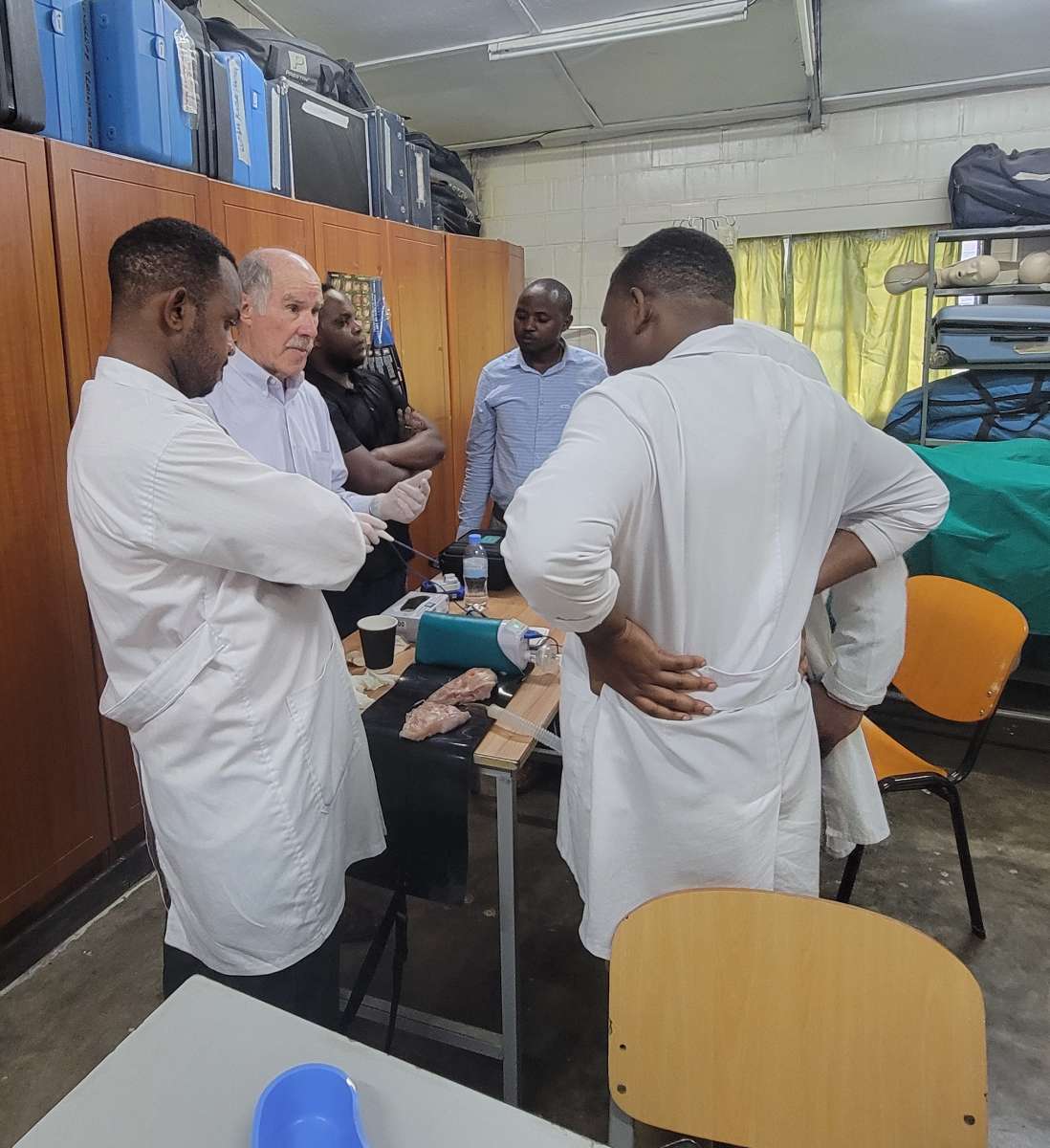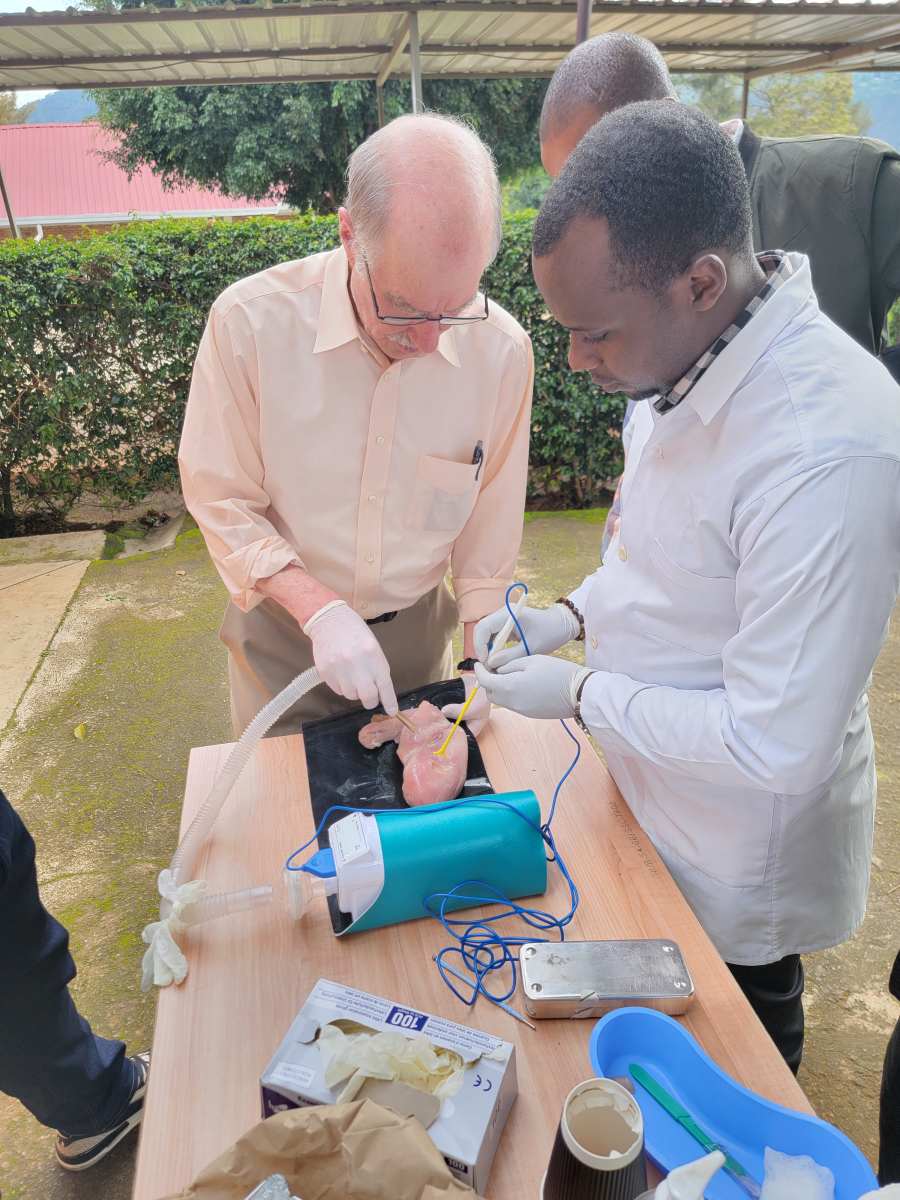The World Health Organization (WHO) has called for the elimination of cervical cancer through screening, vaccination and treatment of cancer and precancer. Rwanda has had an effective vaccination program since 2011, but screening and treatment have seriously lagged behind due in large part to lack of trained healthcare providers. I will be part of a team working under the auspices of the International Organization for Women and Development (IOWD) and the Ob/Gyn Dept. of the University of Rwanda to train local providers at several levels: nurse clinicians, medical students, ob/gyn residents and oncology fellows. The training will focus on screening, visual assessment for treatment (including colposcopy), and especially, treatment with loop electrosurgical excision (LEEP) and thermal ablation, i.e. WHO recommended treatment modalities. I will be teaching using lectures, interactive case presentations, simulation and hands-on supervision of patient care.
This project will benefit the women of Rwanda and their families. There are an estimated 1229 new cases of cervical cancer in Rwanda each year with 829 deaths. Only 11% of eligible women have ever been screened for cervical cancer, which means most cases present at an advanced stage, when effective treatment is harder to access and mortality is higher. This project will help foster a culture of screening among healthcare providers and their patients. Women who currently screen positive experience a delay in care because of a lack of healthcare providers trained to treat precancerous conditions. Treatment at the precancerous stage is effective in preventing invasive cancer and death. By receiving training to perform LEEP and thermal ablation, ob/gyn residents and fellows and nurse providers, respectively, will be able to benefit women with precancer and will be able to provide effective treatment. Those we teach will be encouraged to teach other providers, thereby making these techniques more widely available. Widespread implementation of these triage and treatment modalities will benefit the women of Rwanda by decreasing the morbidity and mortality from cervical cancer. This will not only benefit the women, by preventing cancer, but also their husbands, children, and the nation.
This project, by adding colposcopy, LEEP and thermal ablation to the skillsets of women's health providers in Rwanda, will help prevent delays in care and unnecessary loss to follow-up among women with cervical precancer. Screening and treatment will become more normalized and thereby become expected parts of women's healthcare as in more industrialized countries. The ultimate impact of this project will be a lower incidence and mortality rates from this preventable cancer in Rwanda. The learning from this project will continue after our team has left Rwanda. A monthly case presentation conference has been initiated on Zoom using the Project ECHO platform. This virtual conference gives participants the opportunity to discuss real cases with expert faculty, and learn from brief didactic presentations relevant to the cases. I have been on the faculty of this monthly training session since its inception and it will continue after this project. This will reinforce the learning offered during this mission and enhance the skills of the providers we have taught. After returning from Rwanda, follow-up discussions among the team members and with the faculty of the University of Rwanda Ob/Gyn Dept. will help direct the future course of the project and dictate the direction of additional in-country trainings in the future.








This mission to Rwanda built upon progress made in prior missions. The objective has been to teach ob/gyn residents and nurse clinicians the concepts and necessary skills for cervical cancer prevention and to establish a culture of screening in the country. While Rwanda has a mature HPV vaccination program, close to the World Health Organization’s target of vaccinating 90% of girls, their screening efforts fall far short of the WHO recommendation of 70% of women screened with a high performance test. On this mission, I worked with the International Organization for Development and Women (IOWD) and the ob/gyn department of the University of Rwanda as part of a team that did didactic teaching and simulation training for residents and medical students, and also hands-on supervision of patient care with nurse clinicians.
We started with two days of a structured course on screening and treatment for precancer, with topics including epidemiology, HPV virology, colposcopy including case-based learning, and training in LEEP and thermal ablation that included simulation using chicken breasts. The first day’s class included 18 residents, 2 interns and 9 medical students. The didactic content was repeated the second day for those who missed the first day because of clinical duties: 10 residents and one student. Later in the week, my team and I went to several small district clinics and hospitals to work one-on-one with the clinical nurses screening with VIA (visual inspection with acetic acid) and treating precancers with thermal ablation. At the district clinics and hospitals, high performance screening with HPV testing is only available a few times a year when a team from the Rwanda Biomedical Center sponsors screening days. The rest of the year, the only screening test that’s available is VIA, which is a much lower performing test approved by WHO when higher performing tests are not available. To be effective VIA requires ongoing quality control, which our visit provided.
Because this is an ongoing project, I have been fortunate to establish relationships with a number of the local Rwandan providers, including nurses, residents and medical school faculty. Rwanda is a beautiful country with very warm, friendly people. I hope to be able to continue to build on the results of this year’s mission in the future. Thanks to the Doximity Foundation for making it possible.